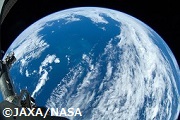| タイトル | Integrated Science Investigation of the Sun (ISIS): Design of the Energetic Particle Investigation |
| 本文(外部サイト) | http://hdl.handle.net/2060/20150010244 |
| 著者(英) | Christian, E. R.; Boyle, M.; Shuman, S.; Burgum, J. M.; Beebe, C.; McComas, D. J.; von Rosenvinge, T. T.; Birdwell, B.; Alexander, N.; Angold, N.; Bale, S.; Burnham, J. A. |
| 著者所属(英) | NASA Goddard Space Flight Center |
| 発行日 | 2014-07-05 |
| 言語 | eng |
| 内容記述 | The Integrated Science Investigation of the Sun (ISIS) is a complete science investigation on the Solar Probe Plus (SPP) mission, which flies to within nine solar radii of the Sun's surface. ISIS comprises a two-instrument suite to measure energetic particles over a very broad energy range, as well as coordinated management, science operations, data processing, and scientific analysis. Together, ISIS observations allow us to explore the mechanisms of energetic particles dynamics, including their: (1) Origins-defining the seed populations and physical conditions necessary for energetic particle acceleration; (2) Acceleration-determining the roles of shocks, reconnection, waves, and turbulence in accelerating energetic particles; and (3) Transport-revealing how energetic particles propagate from the corona out into the heliosphere. The two ISIS Energetic Particle Instruments measure lower (EPI-Lo) and higher (EPI-Hi) energy particles. EPI-Lo measures ions and ion composition from approx. 20 keV/nucleon-15 MeV total energy and electrons from approx.25-1000 keV. EPI-Hi measures ions from approx. 1-200 MeV/nucleon and electrons from approx. 0.5-6 MeV. EPI-Lo comprises 80 tiny apertures with fields-of-view (FOVs) that sample over nearly a complete hemisphere, while EPI-Hi combines three telescopes that together provide five large-FOV apertures. ISIS observes continuously inside of 0.25 AU with a high data collection rate and burst data (EPI-Lo) coordinated with the rest of the SPP payload; outside of 0.25 AU, ISIS runs in low-rate science mode whenever feasible to capture as complete a record as possible of the solar energetic particle environment and provide calibration and continuity for measurements closer in to the Sun. The ISIS Science Operations Center plans and executes commanding, receives and analyzes all ISIS data, and coordinates science observations and analyses with the rest of the SPP science investigations. Together, ISIS' unique observations on SPP will enable the discovery, untangling, and understanding of the important physical processes that govern energetic particles in the innermost regions of our heliosphere, for the first time. This paper summarizes the ISIS investigation at the time of the SPP mission Preliminary Design Review in January 2014. |
| NASA分類 | Astrophysics |
| レポートNO | GSFC-E-DAA-TN17392 |
| 権利 | Copyright, Distribution as joint owner in the copyright |
|

